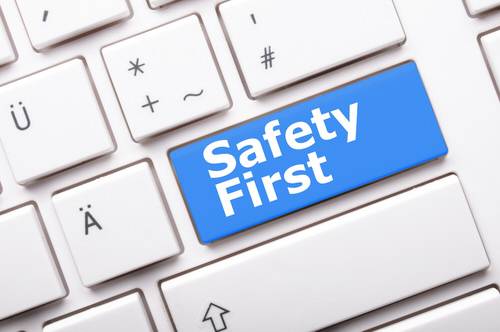
Connect with respect. That’s the theme for Tuesday’s Safer Internet Day. Geared toward promoting online rights and responsibility from cyber bullying to social media, and originally started as a European Union initiative, the 10th annual event has grown into a global movement with participants in more than 90 countries on 6 continents.
The program is run by the EU’s Insafe network in Brussels. On Tuesday, February 5, 2013, Insafe includes 30 Safer Internet Centers, one in each of the 27 EU member states, plus nonmembers Iceland, Norway and Russia. The centers are like a boys and girls club for the online set, offering a hotline, advice and support for children, parents and educators about how to stay safe online.
Online privacy is a particular concern. Only a few weeks ago, the Internet celebrated the anniversary of the SOPA failure on Data Privacy Day. With U.S. laws like COPPA specifically geared towards protecting children, and pending regulation in the mobile app industry, attention to online safety has never been higher. So there’s no better time to sharpen your skills.
Protect Yourself
Your online reputation is something anyone can work to improve. Respect means a lot of things, including avoiding pirated content and not things that belong to other people. But respect also means taking responsibility for your own actions online. Here’s what you can do to be respectful and responsible today – and everyday.
1. Protecting your rep means staying up to date with the evolving privacy policies on your social accounts. It also means being careful to post only content you really want to share. That’s one of the main tenets of successfully managing your online footprint. It’s also important to keep strong passwords: No pet names, date of births or anything easily guessable. And please, please, please, use different passwords for multiple accounts! Think of it like this: You wouldn’t keep the same key for your house, car and safety deposit box would you? So don’t do it online.
2. Make sure you keep up to date with anti-virus, anti-spyware and spam filter software on your computer. Keeping your castle protected means never downloading unknown files or clicking on dodgy links, whether on emails or social media messages. If you’re not sure, and you think a file is probably OK, be sure to scan it for viruses before opening it.
3. Avoid accessing bank accounts and other sensitive site from public Wi-Fi locations. Depending on how high profile a target you are, you may even want to avoid checking your personal email in those situations. You never know who’s watching on public Wi-Fi. Another good rule of thumb is to set your Web browser to private browsing mode. This eliminates a lot of data mining and link caching by sites. When you’re not using your device, disconnecting from the Web is a very good idea. This largely eliminates the potential for hackers or viruses to access your device.
It’s great that Web browsers and mobile devices let you remain signed in to your social networks and accounts, but that also means that if you leave your device lying around, someone can easily access all your accounts and assume your identity. Remember to log out of your accounts when you’re not using them. And password protect your phone and computer.
These suggestions may seem like no-brainers – and they are. Rather than advanced protection techniques, they’re the basic, everyday rules you should incorporate them into your life. Make them into habits… you’ll be happy you did.
Photo courtesy of Shutterstock.

















